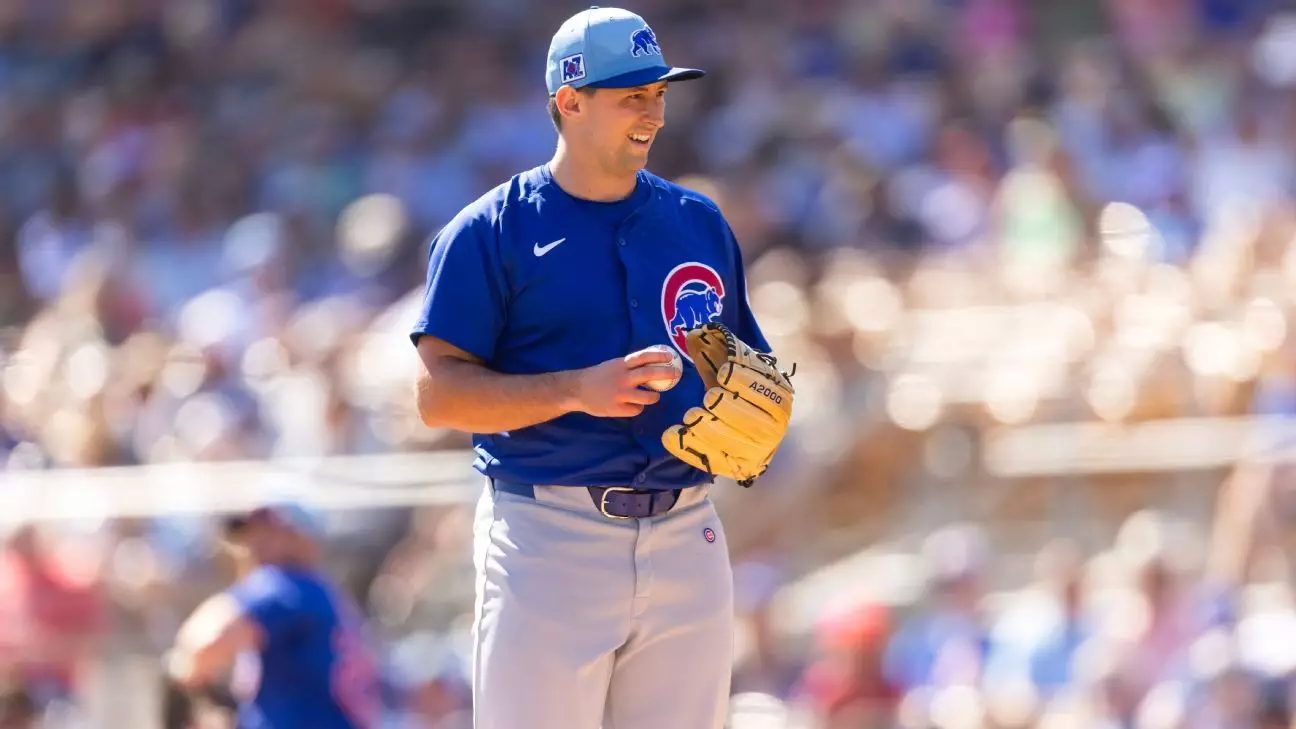The opening of Major League Baseball’s (MLB) spring training marked a pivotal moment in the sport’s history. For the first time, players had the opportunity to challenge ball and strike calls during a game. This innovative approach, aimed at incorporating technology into the traditional fabric of baseball, was showcased on Thursday as Chicago Cubs pitcher Cody Poteet became the inaugural player to call for a review in a match against the Los Angeles Dodgers. The implications of this new challenge system, originally tested in the minor leagues, are extensive and promise potential changes to how baseball is played and officiated at the highest level.
Cody Poteet, recently acquired from the New York Yankees in a trade involving Cody Bellinger, initiated the new challenge by questioning a fastball call directed at Dodgers infielder Max Muncy. Poteet believed the pitch grazed the strike zone, but umpire Tony Randazzo’s judgment was otherwise. Remembering the mechanism for initiating a review—a tap of the head—Poteet made the move, leading to a display of the pitch on the scoreboard. The result? The original call was overturned; instead of being in a 1-1 count, Muncy faced a more daunting 0-2 count, ultimately leading to a strikeout.
Muncy himself was surprisingly optimistic about this new approach. After the incident, he expressed confidence in the challenge system, reflecting on how he expected the decision to be reversed. His positive and engaged attitude towards the trial illustrates that players may view this advancement as an opportunity to enhance the integrity of the game.
This spring, MLB is venturing into unchartered territory by allowing players to challenge certain calls. Unlike the fully automated ball-strike system utilized in the minor leagues, this mechanism provides a more collaborative approach: players can call for a challenge on two occasions per game. Importantly, only the pitcher, catcher, or batter can initiate this challenge, ensuring a level of responsibility and judgment remains among those involved in the play.
While fans may be accustomed to the traditional methods of officiating, this new dynamic introduces an element of strategy and engagement. As Poteet pointed out, he felt confident in his judgment regarding the pitch’s placement, which prompted him to utilize a challenge. This level of player involvement in decision-making is a departure from the status quo of passive observation, suggesting that the dynamics of the game are starting to shift.
Data from the minor leagues indicates that the likelihood of calls being overturned rests around 50%, with games averaging approximately four challenges. In Poteet’s game, only two challenges were made, which reflects the cautious approach players may take in the early days of the system’s implementation. For catcher Pablo Aliendo, his challenge did not result in a reversal, demonstrating the thought process needed before invoking a review.
Max Muncy opined on the broader implications of integrating this system into regular season games. Though MLB has confirmed it will not enact this system beyond spring training for the current year, discussions for future implementation are very much on the table. The potential for the challenge system to become a permanent fixture could reshape the concept of officiating in baseball for years to come, potentially being adopted as early as 2026.
As this season unfolds, MLB will collect feedback from players and coaches to gauge perception and effectiveness in determining whether to adopt the challenge system as a staple of professional play. With 60% of games in both the Cactus and Grapefruit leagues expected to utilize the challenge technology, it is evident that the league is committed to evolving the game.
Cody Poteet summarized the sentiment succinctly: “I feel like every strike matters.” The embrace of this challenge system showcases a willingness within the sport to adapt in pursuit of increased accuracy and fairness, potentially shaping a new chapter in baseball history. As the Cubs triumphed over the Dodgers 12-4, the focus shifted beyond the final score to a reimagined future for how the game may be played and officiated, ushering in an era of innovation on the diamond.

